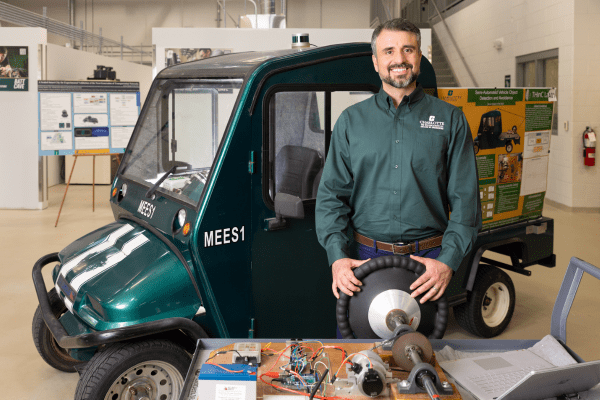Amir Ghasemi Wins NSF CAREER Award for Human-Machine Interface Project

Amir Ghasemi, Assistant Professor in the William States Lee College of Engineering, earned the prestigious National Science Foundation CAREER Award in June of this year to support his investigations in the area of human-robot interaction. Ghasemi’s proposal entitled “CAREER: Learning and Leveraging Conventions in the Design of an Adaptive Haptic Shared Control for Steering a Semi-Automated Vehicle” was awarded $571,306 for a five-year study beginning 2023.
Human-robot collaboration often encounters challenges due to the inherent differences in how people and machines perceive the world around them. Ghasemi highlights the fact that while humans possess the ability to smoothly resolve conflicts through mutual adaptation, achieving co-adaptation between humans and robots (where each easily find solutions that work for both) proves to be considerably more complex. This complexity arises from the diverse strategies that humans employ in conflict resolution. Consequently, robots must be capable of learning and adjusting their behavior to accommodate different human preferences and strategies.
The ultimate objective of Ghasemi’s project is to create an environment where humans and robots, specifically in the context of a driver operating a semi-autonomous vehicle, can seamlessly collaborate by leveraging the strengths of both parties. Semi-autonomous vehicles are those that can operate for extended periods with little human input.

“By combining the superior perception and judgment of humans with the speed, accuracy, and tirelessness of robots,” Ghasemi said, “my goal is to establish a foundation for effective collaboration, irrespective of individual human differences.”
This critical first step towards enabling collaborative partnerships among teams of humans holds tremendous potential for the advancement of various industries and fields.